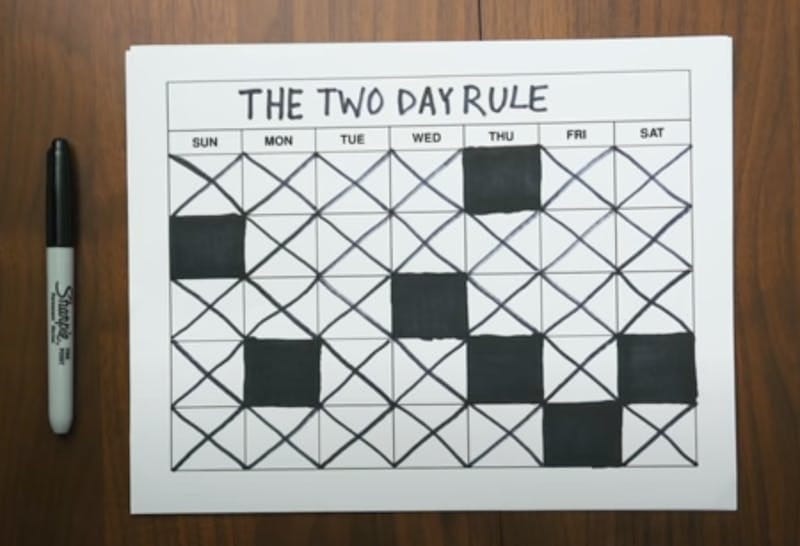
You set a goal. You get excited. You start strong.
And then… life happens.
Maybe you’re hit with a busy week at work. Maybe your child gets sick. Maybe you’re just tired. So, you skip the workout. You miss a journaling session. And after a while, you forget about the new habit you were trying to build, and suddenly, you feel like you’re right back at square one.
That’s where the Two Day Rule comes in: a simple, flexible strategy to help you stay consistent without expecting perfection.
It’s a way to keep showing up, even when things don’t go to plan. Because building better habits isn’t about being perfect every day, it’s about being kind to yourself, staying intentional, and learning how to begin again.
Where the Two Day Rule Comes From
The Two Day Rule has roots in the world of personal and professional development. It originally gained traction as a decision-making framework used in business, designed to prevent unnecessary delays and encourage timely action. Over time, this concept evolved beyond the workplace and began influencing task management and personal productivity.
But the first time I came across the Two Day Rule was while watching a video on YouTube by filmmaker and creator Matt D’Avella. In the video, he explained that the rule helped him build habits that last, he gained 20 pounds of muscle and was able to create a consistent exercise habit.
The idea is simple:
Never skip a habit two days in a row.
That’s it. If you miss a day, no problem. Just don’t miss two. This tiny mindset shift can be the difference between keeping your momentum and losing it completely.
Why Missing One Day Isn't the Problem
A lot of us fall into the all-or-nothing trap.
We start strong with a new habit, and the moment we slip up. We miss a run, skip a meditation, sleep through the morning routine, and we label it a failure. And once that perfection is broken, our brains whisper:
“You’ve already messed up. Might as well stop altogether.”
Psychologists call this the what-the-hell effect. It’s the same thinking that leads someone to eat an entire cake because they had one slice while on a diet. The moment the plan isn’t perfect, we assume we’ve blown it.
But habit research shows something different: it’s not about being perfect, it’s about being consistent. One missed day won’t hurt your progress. But two? That’s the start of a new (unwanted) pattern.
The Two Day Rule interrupts that downward spiral. It reminds you that missing a day is fine, as long as you get back on track the next day.
Why the Two Day Rule Works
There’s something incredibly powerful about simplicity. The Two Day Rule doesn’t require apps, complex systems, or rigid discipline. It’s just a mindset. A decision.
Here’s why it’s so effective:
- It keeps you consistent, even when life isn’t. Life will always be unpredictable. The Two Day Rule builds in flexibility.
- It builds trust with yourself. When you come back after a missed day, you prove to yourself that you’re serious, even when it’s hard.
- It reduces guilt and perfectionism. Missing one day no longer feels like failure and it becomes part of the process.
And perhaps most importantly: it teaches you that success doesn’t come from intensity. It comes from returning, again and again.
How to Put the Two Day Rule Into Practice
You don’t need to overhaul your life. Just start with one habit you care about. Something small and meaningful. Then:
- Track it visibly. Use a habit tracker, journal, or wall calendar. Seeing it helps reinforce consistency.
- Give yourself grace. Missing one day is expected. It happens to everyone.
- Commit to showing up the next day. Even if it’s a shorter version of your habit, do something to keep the chain alive.
- Celebrate the bounce-back. That second-day action matters more than the first. It’s the moment you choose your future self over momentary comfort.
Real change doesn’t come from willpower or perfection. It comes from small, intentional actions, repeated over time.
The Two Day Rule is one of those small but powerful tools. It’s a gentle guardrail. A flexible framework. A way to remind yourself that progress is possible, even when life is unpredictable.